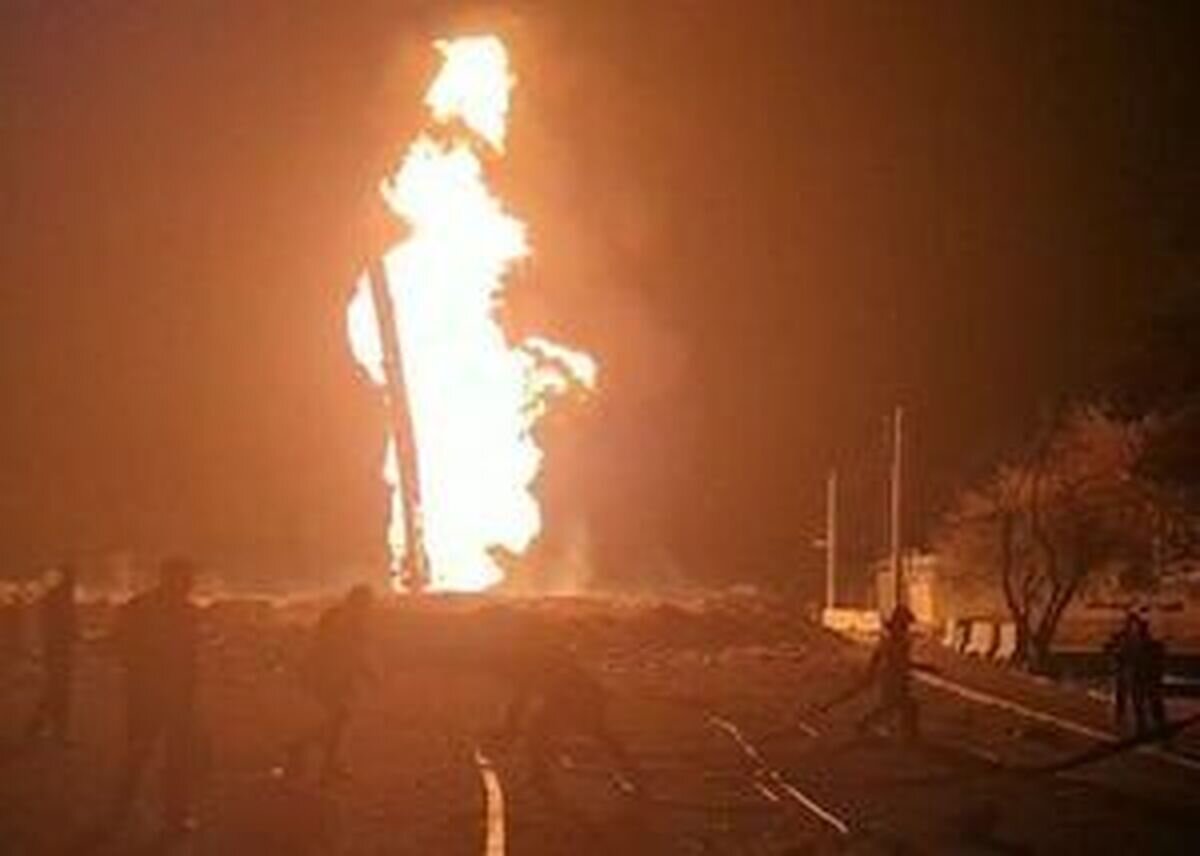Futile Sabotage

TEHRAN- The recent sabotage in gas pipelines serves as another piece in the broader puzzle of U.S. actions aimed at disturbing Iran, blending overt and covert maneuvers while shirking accountability for its reprehensible deeds.
On Wednesday, February 14, the Borujen gas pipeline was rocked by an explosion, fortunately causing no casualties, as confirmed by local authorities.
The incident, transpiring at 12:50 am, involved two critical national gas lines responsible for transporting gas from the southern to the northern regions of Iran. Flames engulfed the ruptured pipelines, prompting swift response efforts from rescue and firefighting teams dispatched to the scene by the Borujen governor.
Emphasizing the gravity of the situation, the governor highlighted the proximity of the pipelines to a crucial north-south transit route, necessitating the closure of the area for drivers' safety within two hours of the blast.
Another powerful explosion disrupted a second gas pipeline in Fars Province.
Iranian Oil Minister Javad Oji, addressing the acts of sabotage, revealed that the explosion in Borujen occurred around 1:00 am, targeting a segment of Iran's national gas transmission network with multiple points of detonation. Immediate countermeasures were deployed to mitigate the impact of the attack, underscoring Iran's preparedness to thwart sabotage attempts on its oil and gas infrastructure.
Attributing the incident to nefarious forces, Minister Oji denounced attempts by adversaries, saying that by people's massive participation in the National Day and the great Bahman 22 rally on Friday, it was predictable that foes would carry out sabotage in the country.
Despite these hostile actions, he affirmed Iran's resilience, assuring that the enemy's objectives to disrupt gas supply in major provinces had been thwarted and normal transmission operations would resume promptly.
In the aftermath of the attack, residents of Isfahan received purported messages of gas flow disruptions. The move was seen as supplemental psychological warfare to the explosions.
The messages were dismissed as "fake" by Governor Abolghasem Asgari.
He urged citizens to rely on official sources, such as IRIB News, for accurate information regarding the province's gas supply.
The Tehran Times previously shed light on the U.S. government's clandestine and overt strategies, signaling a retaliatory stance of the White House dating back to January 31 in a report titled Covert and Overt Operations.
In the wake of the attack on U.S. logistic hub in Jordan called Tower 22, the White House found itself at a crossroads, grappling with a range of unrealistic options in its quest to restore lost prestige.
Despite widespread speculation among various media outlets regarding a potential direct U.S. military attack on Iranian soil, spurred by critiques from U.S. senators and politicians regarding President Biden's approach to West Asia, the Tehran Times emphasized the formidable international obstacles Washington would encounter.
Furthermore, Iran's robust deterrence capabilities and the United States' entanglement in multiple global conflicts served as additional deterrents to any direct assault on Tehran's interests.
In an exclusive report, the Tehran Times highlighted the current lack of conducive conditions for a blatant and overt military operation within Iran's borders from the American perspective. The perceived high risk associated with such an endeavor contributes to the unlikelihood of immediate direct action.
However, the absence of overt aggression does not negate the existence of plots for covert operations designed to inflict damage while allowing plausible deniability.
The report underscored the potential for U.S. response, indicating a window of approximately one week, during which cyber attacks could be employed as part of a broader retaliatory strategy. This assessment sheds light on the intricacies of U.S. decision-making to carry out malicious plans and evade responsibility.
Since then, Iran has incurred cyber attacks and, most recently, acts of sabotage against gas pipelines, which highlight the current state of play between Iran and the West.
Leave a Comment